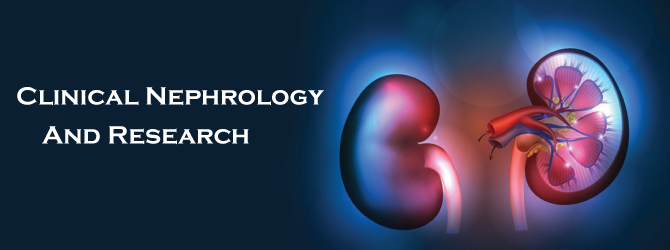
Sign up for email alert when new content gets added: Sign up
Majid Mohabbat
University of Guilan, Iran
Posters & Accepted Abstracts: Clin Nephrol Res
Patients with Chronic Kidney Disease (CKD) experience significant reductions in muscle mass, physical function, individual independence, and overall quality of life. This lower physical function is associated with increased levels of inflammation through the gut-muscle axis, its relationship to tight junctions, and finally dysbiosis. Furthermore, renal failure leads to changes in the intestinal microbiome (Gut-kidney axis) via changes in nutrition and medication, which leads to leakage of bacterial metabolites, in particular uremic toxins into the bloodstream through changes in intestinal barrier properties that all involved in the progress of CKD. In addition, modification in intestinal microbial lines includes enrichment of Eggerthella lenta and depletion in Bacteroides eggerthii, Roseburia faecis, and Prevotella spp. Various therapeutic interventions have proposed to restore the coexistence of the intestinal microbiome which if approved, can remarkably impact the improvement and treatment management of CKD patients. Exercise and nutrition, especially probiotics, are among these interventions. Studies have demonstrated that exercise mediates through, production of the anti-inflammatory metabolites of SCFA (acetate, propionate, and butyrate) via its effect on the gut microbiome and reduces lipopolysaccharides. In addition, several studies have examined the role of symbiotic in renal function. For example, Zhang et al investigated the protective influence of Shenqi Yanshen Formula against CKD and reported that SQYSF significantly reduced the rate of renal fibrosis in CKD mice, and remarkably down-regulated the expressions of inflammatory markers and even has more potential to change the composition in mice’s intestinal flora. However, it is worth noting that studies were carried out on animal models and their mechanisms of action are not fully understood. As a result, despite different exercise modalities and microbiome alteration methods, appears that identifying important variables such as consistent and appropriate exercise type, duration, intensity, frequency, and timing alongside the intestinal microbiome enrichment approach in humans is considerably needed. Recent Publications 1. Clauss M, Gérard P, Mosca A and Leclerc M (2021) Interplay between Exercise and Gut Microbiome in the Context of Human Health and Performance. Front. Nutr. 8:637010 2. Lohia, S.; Vlahou, A.; Zoidakis, J. Microbiome in Chronic Kidney Disease (CKD): An Omics Perspective. Toxins 2022, 14, 176.